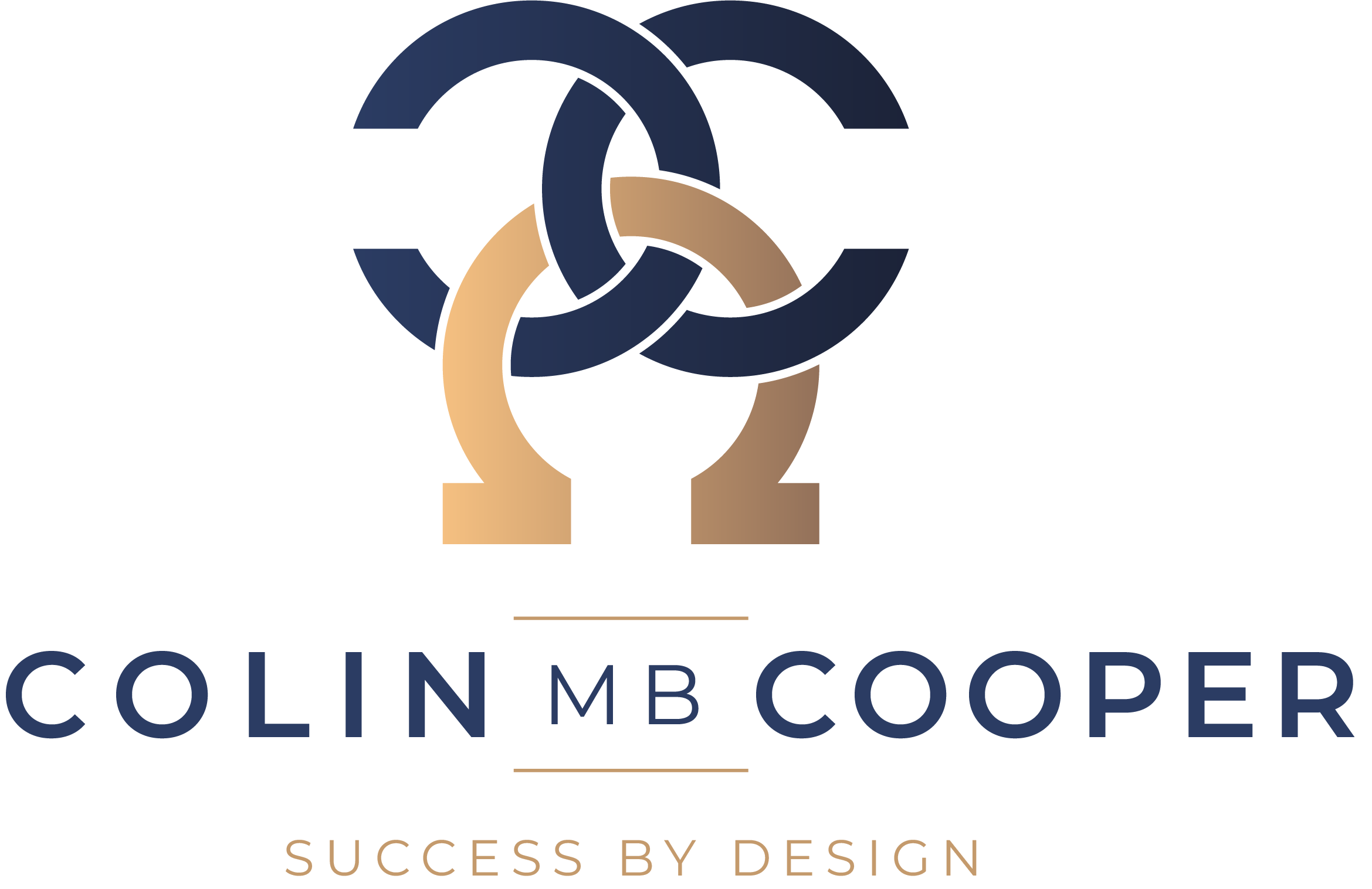In the fiercely competitive arena of modern commerce, the visceral prowess of leadership has emerged as the cornerstone of successful business growth. Leadership development, rooted in strategic principles and creative insight, empowers professionals to transcend the commonplace uncertainties synonymous with the corporate landscape – imposter syndrome and career inertia alike. As elucidated by Leonardo Furtado of Amazon Web Services, an embracement of finely honed leadership strategies is not a mere luxury but an absolute imperative for an ascendant professional trajectory.
Leadership training is not simply about learning corporate parlance; it is the continual refinement of dynamic frameworks that shape organisational culture and inform decisive actions. The articulation of one’s leadership faculties has proven to be the linchpin in unlocking full potential and catalysing business growth. It is through the adoption and internalisation of principal leadership characteristics, such as customer-centric voracity and a zeal for expedient decision-making, that businesses flourish.
Key Takeaways
- Leadership skills are instrumental in transforming personal doubts into strategic opportunities for growth.
- Leadership principles offer a vital framework for continuous personal and professional development.
- Customer obsession and the capacity to make swift, informed decisions are quintessential for driving business success.
- The commitment to leadership development is proven to enhance organisational culture and decision-making processes.
- Strategic planning, when coupled with leadership training, steers individuals towards achieving an extraordinary career arc.
Embracing Leadership in Paving the Path for Business Success
Effective leadership is not merely about possessing a commanding presence or making authoritative decisions; it encapsulates the subtler art of uplifting ambitions, desires, and the collective will of the workforce towards achieving concerted business growth. The foundation of leadership lies in its role as a guiding beacon that shapes organisational success and the manner in which it is intricately woven into the tapestry of corporate culture and practice.
Defining Leadership and its Crucial Role in Organisations
At its most elemental, leadership within an organisation signifies the ability to steer, inspire, and influence a swath of individuals towards the attainment of a collaborative objective. The visage of leadership as depicted by esteemed thinkers such as John C. Maxwell is coloured by a spectrum of attributes—ranging from insight to influence, suggesting a far-reaching impact on the collective psyche of an organisation. The cultivation of leadership qualities is paramount, as it stands at the crossroads between average and extraordinary organisational success.
Examining the Traits of Highly Effective Leaders
Fostering effective leadership is an endeavour that transcends the mere replication of traits; it necessitates a commitment to nurturing innate qualities through leadership development and training. Empathy, self-awareness, and unwavering strategic vision serve as the hallmarks of effective leadership. It is incumbent upon organisations to enhance leadership skills amongst their ranks, bridging the gap between potentiality and actualised business growth and ensuring the creation of leaders who not only envision success but architect its very foundations.
Furthermore, the business terrain continually evolves, reinforcing the need for leaders to adapt their strategies for successful business growth. Leaders must possess the adeptness to navigate through the complex interplay of market demands and internal dynamics, ensuring they remain effective in guiding their team through the fluctuating landscape of business. By doing so, organisations can ensure sustainable growth and organisational success in a marketplace that rewards agility and forward-thinking.
The Ripple Effect of Strong Leadership on Business Outcomes
The ramifications of effective leadership permeate various levels of an organisation, influencing outcomes and driving successful business growth. As purported by Artur Miranda, the integrity and work ethic instilled by prudent leaders not only garners individual commendation but catalyses organisational triumph. Leaders are tasked with the synchronization of individual talents with the overarching vision of their enterprise—affirming the notion that proficient leadership training is not merely beneficial but crucial for the longevity and prosperity of a business.
In recapitulation, as we parse through the components of leadership, it becomes perspicuously clear that to unlock organisational potential and incite successful business growth, a robust investment in enhancing leadership skills is not only invaluable but indispensable. It is within the crucible of informed leadership development where effective leadership strategies are forged, setting the stage for the ascendance of both individual careers and entire organisations.
Understanding the Fabric of Powerful Leadership Qualities
The pursuit of enhancing one’s leadership skills must inevitably begin with a strenuous and authentic exploration of self-awareness. For leaders aiming to catalyse successful business growth, recognising one’s own leadership qualities is not merely the starting point—it is a continuous journey. Self-awareness acts not just as a mirror reflecting personal competencies and flaws, but also as a compass, guiding one’s effective leadership throughout the complexities of organisational dynamics.
Cultivating Self-Awareness and Authenticity
Authenticity in leadership is cultivated from a deep understanding of one’s character, emotions, and values. When leaders are genuine and transparent, they not only foster trust within their teams but also set a precedent for integrity that can amplify the power of leadership skills. This authenticity paves the way for a sincere relationship with subordinates, enhancing the collective efforts towards leadership development and, ultimately, a successful business trajectory.
Balancing Empathy with Strategic Decision Making
At the cornerstone of effective leadership lies the duality of empathy and strategic decision-making. Mastery of leadership strategies entails an open-door ethos to understanding the aspirations and concerns of team members, balanced with an analytical approach when implementing decisions that drive business growth. Through this equilibrium, leaders affirm their role as empathetic visionaries who enable environments where creativity and efficiency co-exist harmoniously.
The Influence of Leadership Integrity on Company Culture
The underlying essence of a company’s culture is often a reflection of leadership integrity. Transparency and honest practices, woven skillfully into the fabric of everyday management, create a stronghold of trust. It is this trust that underpins the successful business growth of any contemporary organisation. As such, leadership training programmes must accentuate the significance of ethical conduct as a means to navigate the intricacies of modern business landscapes.
Strategies for Leadership Development and Training
With the landscape of business ever-evolving, the imperative for pragmatic and effective leadership training becomes more pronounced. Organisations that place a premium on leadership development witness marked improvements in performance metrics, affirming the vital role of nurturing leadership qualities to unlock your full potential. Such is the essence of fostering an environment pregnant with opportunities for successful business growth.
Adopting a philosophy of continuous learning, and infusing leadership roles with an ethos of ceaseless skill enhancement, bolsters the effectiveness of leadership strategies. It is this cultivation of knowledge that transforms capable managers into visionary leaders, able to navigate the treacherous waters of a competitive market with agility and foresight.
Investing in Leadership Programs to Catalyse Growth
The correlational link between strategic leadership training and business acumen is underscored by the findings of Bersin & Associates, highlighting the boon of investment in leadership programs. As organisations deliberate on methods to catalyse growth, these programs serve as a crucible where leadership development is enhanced, equipping professionals to shepherd their enterprises towards prosperity.
Integrating Continuous Learning into Leadership Roles
To enhance leadership skills, one must espouse the philosophy proffered by Michael Jordan: a relentless dissatisfaction with past achievements coupled with an ardour for continuous learning. This perpetual quest for knowledge equips leaders with the acumen necessary to conjure and execute innovative leadership strategies – the cornerstone of thriving in the cutthroat environs of modern commerce.
Personalised Leadership Coaching: A Tailored Approach to Excellence
Artur Miranda’s advocacy for personalised leadership coaching resonates with the need for a customised approach to leadership excellence. Executive coaching’s bespoke nature offers a tailored conduit to excellence, providing individualised feedback, goal-setting mechanisms, and unwavering accountability, all catered to the unique circumstances of each leader.
As leaders endeavour to harness their innate potential and guide their teams to resounding success, these strategic approaches to leadership development and training become indispensable tools in their arsenal. The pathway to leadership excellence, marked by a steadfast commitment to personal and professional development, is one trodden by those who aspire to transform the very paradigms of business success.

Enhance Leadership Skills to Build Resilient Teams
In an era where business growth is paramount, leadership strategies that unlock your full potential and lead to successful business growth are essential. Enhancing leadership skills is not just about personal achievement; it is about fostering a strong and resilient team capable of overcoming challenges and driving innovation in the marketplace.
Leadership training goes beyond the development of an individual, touching upon the power of leadership skills to harmonise divergent talents and drive collective success. The fabric of such teams is robust, a tapestry of trust, and a synergy that empowers each member to contribute effectively. Let’s delve into the art of team building and understand how leadership development plays a critical role in mentoring talent and fostering an environment of trust and delegation.
Creating Cohesion: The Art of Team Building
The art of team building requires a leader to recognise and enhance leadership skills among their team members. This not only involves identifying individual strengths but also crafting an environment that encourages open communication and collaboration. An effective leader utilises leadership qualities to unite distinct personalities and skills towards achieving a shared vision, fostering cohesion and solidarity within the team.
Nurturing Talent: The Priority of Progressive Leaders
Progressive leaders understand that the refinement of leadership skills is a continuous process, which includes nurturing talent within their teams. Leadership development entails identifying emerging leaders and equipping them with the tools necessary for success. This proactive approach ensures that an organisation’s workforce is ever-evolving and equipped to meet the demands of an ever-changing business landscape.
Delegation and Trust: The Cornerstones of Team Success
Effective leadership is not about maintaining control over every aspect of business operations but about knowing when to delegate responsibilities. By trusting team members with key tasks and decisions, leaders not only enhance leadership skills amongst their ranks but also build an atmosphere of mutual respect. It is this foundation of trust that allows for a symbiotic relationship where each member’s potential is fully actualised, ensuring the overall success and resilience of the team.
Leadership training plays an indispensable role in this process, providing leaders with the strategies required to foster a successful cycle of delegation and development. By prioritising these aspects of leadership, businesses position themselves to experience sustained growth and success, borne of teams unshackled by limitation and driven by a shared purpose.
Effective Leadership: Driving Innovation and Competitive Edge
The landscape of modern business is defined by rapid change and relentless competition. Herein, the power of leadership skills emerges as the fulcrum upon which the wheel of innovation turns. Proactive leaders, armed with robust leadership strategies, are the harbingers of transformative ideas that define market trends and establish competitive benchmarks.
In the realm of business growth, effective leadership is not a static entity but a dynamic force that encourages a culture of invention and enterprise. The cultivation of a work environment brimming with creativity and the freedom to explore is what distinguishes organisations poised for exponential growth.
- Leaders endowed with a forward-thinking mindset and the acuity to foresee industry shifts play a pivotal role in setting the tone for innovation.
- Through the integration of leadership training and development programs, businesses empower individuals to instigate positive change and embrace disruptiveness with alacrity.
- Strategic empowerment by visionary leaders ensures that the potential of burgeoning talent is harnessed, sculpting a future rich with inventive possibilities and sustained advancement.
Moreover, effective leadership is instrumental in fostering an agile workforce capable of adapting to the exigencies of the 21st-century market. Thus, successful business growth is inextricably linked with a company’s capacity to embed innovative thought processes within the corporate ethos, an endeavour spearheaded by its leaders.
The innovative leader’s mantra is clear: foster an atmosphere where creativity thrives and watch as the seeds of ingenuity grow into a garden of commercial triumph.
To conclude, the pursuit of business pre-eminence in an ever-evolving commercial theatre necessitates a steadfast devotion to leadership excellence. It demands not merely the acquisition but the application of pivotal leadership skills that both initiate and propel the wheels of innovation, carving a distinctive competitive edge in the corporate firmament.
Upscaling Customer Obsession in Business Dynamics
In the dynamic march towards business growth, the commitment to upscaling customer obsession spurs corporates to reimagine their market approach. It is entrenched in the philosophy that customer satisfaction fuels long-term success, and it is here where leadership strategies make an indelible impact. The quest to unlock one’s full potential in this sphere is not without its stratagems and foresight, both of which are components of effective leadership.
Customer-Centric Approaches for Enhanced Satisfaction
A company’s ability to nurture and amplify customer satisfaction lies in adopting a meticulously customer-centric approach. Leadership training focused on customer engagement instills a deep-rooted understanding of customer needs—an understanding that becomes the compass for all organisational efforts. Embedding this approach necessitates leaders to exemplify leadership qualities that resonate with customer values and expectations.
Leveraging Customer Feedback for Strategic Improvements
The articulation of leadership skills extends beyond internal operations; it embraces the power of customer feedback as a transformative tool. These insights become a potent source of strategic refinement, where leadership development programmes teach the virtue of listening and responding to feedback with agility. This unyielding dedication to improvement consolidates the bedrock of continuous business growth.
Instilling a Culture of Customer Advocacy Among Leadership
The pinnacle of customer obsession is reached when leaders do not merely serve but champion their customers’ cause. By instilling a culture of customer advocacy, organisations signal their unwavering commitment to serve. It’s a strategic pivot from simply delivering to delighting—a move that harnesses the power of leadership skills in fostering a customer-aligned ethos.

Unlock Your Full Potential: The Power of Leadership Skills in Business Growth
The relentless pursuit of effective leadership is an undeniable catalyst for personal and organisational transformation. Leadership development is not an esoteric art; it is a science of honing human potential to embody the virtues critical to spearheading unprecedented business growth and productivity.
Realising Personal Growth Through Leadership Excellence
To realise one’s fullest potential and soar to the zenith of professional success, one must immerse oneself in the rigorous process of leadership training. It involves a metamorphosis from passive engagement to active empowerment, wherein one embraces leadership strategies that propel one to distinguish oneself in an increasingly complex business milieu.
Infusing Leadership Principles for Business Expansion
Instilling effective leadership qualities is instrumental in navigating the trajectory of business growth. Leadership strategies are the bedrock upon which the edifice of organisational expansion is constructed, fostering environments where innovation and strategic thinking are commonplace.
Case Studies: Proactive Leadership Transforming Businesses
In examining the annals of corporate success stories, one observes a consistent theme: businesses that transcend the ordinary are often helmed by visionaries who exercise the power of leadership skills. These leaders stand as testaments to the profound impact that leadership development and training have on the destiny of their respective organisations.
Today’s commercial landscape is replete with narratives of companies undergoing metamorphoses under the watchful guidance of adept leaders. These individuals, armed with a diverse array of leadership skills, have not only propelled their establishments to greater heights but have also set a standard for innovation and strategic operation within their industries.
Lead by Example: Cultivating an Inspiring Personal Brand
In the throng of the corporate world, where the pursuit of successful business growth is relentless, leadership is not merely a title; it is an active demonstration of values and behaviours. Through the refinement of leadership strategies, professionals establish a standard for others, fostering a culture where leadership development is intrinsic to the organisation’s advancement. Individuals who exemplify exceptional leadership qualities create an aura of inspiration, encouraging peers and subordinates alike to elevate their standards and contribute meaningfully to the business’s ethos and success.
- Leading with integrity to foster trust and admiration.
- Incorporating transparency in dealings and communications.
- Exhibiting unwavering commitment even in adverse situations.
- Nurturing a growth mindset that embraces challenges.
An inspiring personal brand is not built overnight; it accrues over sustained effort and resonance with core values. The leader’s quest for continuous improvement telegraphs a potent message across the organisational echelons: each individual’s development is paramount to the collective success.
A leader adorned with a compelling personal brand is not only more credible but becomes the epitome of the organisation’s aspirations. The meticulous blend of professionalism and charisma underpins a narrative of authenticity, which becomes integral to successful business growth.
| Leadership Quality | Impact on Business Growth |
|---|---|
| Authenticity | Builds trust and forges stronger relationships with stakeholders |
| Resilience | Ensures continuity and adaptability in a fluctuating market landscape |
| Innovation | Propels the business ahead of competition by fostering a culture of creative thinking |
| Decisiveness | Promotes confidence amongst peers, encouraging bold, strategic initiatives |
Each quality encapsulated by a prominent leader cascades into the operational veins of the business, stirring momentum and engendering an environment ripe for expansion and innovation. The integral role played by effective leadership cannot be overstated; indeed, leadership is a linchpin in securing not just survival but the flourishing of businesses in a competitive arena.
The journey of leadership is perpetual, bound to the ever-escalating benchmarks of excellence. A formidable personal brand offers guidance and serves as a beacon to those charting their path within the tumultuous seas of commerce. Thus, individuals who practise what they preach, presenting more than mere platitudes but a living emblem of values, lay down the stepping stones for others aiming for the zenith of professional achievement.
As businesses seek to elevate their identity within the market, they tether their fortunes to leaders who are the flag-bearers of their vision, mission, and values. It is these leaders, with their hallmark characteristics and a strong personal brand, who undeniably carry the torch, lighting the path for successful business growth and cementing the ethos of a culture that prizes leadership development.
Adapting to Change: The Agile Leadership Mindset
The chameleonic nature of today’s business arena necessitates an agile leadership mindset, where the capacity to at once anticipate and adapt to change forms the nucleus of effective leadership. Agile leaders are those who, equipped with robust leadership strategies, pivot deftly to cater to evolving market demands, all the while ensuring the company retains a secure grounding in its strategic vision for successful business growth.
Embracing Flexibility: Pivoting Strategies to Market Demands
An agile leader’s prowess lies in the ability to engineer swift, responsive adaptations to the multifarious shifts in market dynamics. This form of leadership is not confined to reactive measures; rather, it is proactive, seeking to unlock your full potential and that of your organisation by re-calibrating strategies in anticipation of future trends. Thus, accession to a state of flexibility is imperative in the realm of leadership training, engendering a workforce that thrives amid the flux of the commercial landscape.
The Role of Leaders in Managing Organisational Change
Change, at times, is the harbinger of advancement, yet its impact can reverberate with disquiet. Leaders are pivotal in transmuting potential disarray into structured innovation. Through leadership development, the navigation through organisational change becomes less an odyssey through uncharted waters and more a voyage towards expansion and renewal. These leaders are stalwarts in preserving core values, all while championing the catalysts for change that enhance leadership skills and uphold business resilience.
Continuous Improvement: An Adaptive Leadership Approach
To remain at the vanguard of an industry, leaders must dedicate themselves to the ethos of perpetual refinement. The concept of continuous improvement is ingrained in adaptive leadership—an approach where one scrutinises processes, outcomes, and strategies with a constructive, critical eye. Such leaders, utilising lessons wrought from seasoned experience, forge an obligatory path in leadership training to embody ingenuity and commitment to excellence, hallmarks of enduring successful business growth.
Navigating Challenges: The Resilience of Effective Leadership
In the quest to unlock your full potential within the corporate sphere, the road is often punctuated with hurdles that test the tenacity and endurance of one’s leadership qualities. Yet, it is the resilience inherent in effective leadership that empowers individuals and organisations to navigate through periods of adversity and emerge with renewed vigour. Here, we dissect the essence of leadership resilience and reveal the pivotal role it plays in sustaining business growth and success.
Endurance in leadership tangibly manifests when well-established leadership strategies are confronted with unforeseen tribulations. The leaders who stand firm are those who, having developed a comprehensive repertoire of adaptive qualities, demonstrate not only the ability to persist but also the capacity to reformulate their approach in the face of changing tides. It is this adaptive re-alignment that further cements the efficacy of their leadership.
Furthermore, the resilience of a leader acts as a beacon, encouraging their workforce to embody a similar fortitude. When a resilient leader effectively communicates their vision, it fosters an organisational culture resilient to the volatility of market dynamics. Thus, the undulating journey of business growth is steadied by a leadership that exemplifies constancy and an unyielding resolve towards achieving strategic objectives.
The synthesis of resilience within one’s leadership repertoire is indispensable to maintaining a competitive edge in today’s frenetic business landscape. This unassailable component of effective leadership is what galvanises teams and aligns them under a shared goal of not only surviving but thriving amidst challenges. In essence, leadership resilience is the crucible within which the full spectrum of leadership qualities are refined, poised to unlock your full potential and navigate a pathway to enduring success.
FAQ
What role do leadership skills play in business growth?
Leadership skills are vital for business growth as they help transform challenges into opportunities, mould vision into reality, and can influence a company’s culture and decision-making. Strong leadership aligns individual capabilities with the organisation’s vision, promotes a strong work ethic, and nurtures employees, all of which are essential for successful business growth.
How can one bolster their leadership qualities?
Enhancing leadership skills includes the development of self-awareness, embracing empathy, crafting strategic thinking, and finding inspiration. It also involves investing in leadership training and development programs, embracing continuous learning, and seeking personalised leadership coaching to address individual needs and goals.
How do effective leadership qualities impact organisational success?
Effective leadership qualities exert a significant influence on organisational success by setting precedents in work ethics and integrity, aligning the team towards shared objectives, and guiding decision-making processes. A leader’s ability to inspire and navigate complex business environments positively affects the entire organisation’s performance.
Why is strategic decision-making important in leadership?
Strategic decision-making is crucial as it balances organisational aims with thoughtful risk-taking and ensures that the company is moving towards its long-term goals. Effective leaders use strategic thinking to foster innovation, maintain competitiveness, and adapt to market changes while managing the company’s overall strategy.
What impact does leadership integrity have on company culture?
Leadership integrity is fundamental to establishing a company’s ethical mosaic. It promotes a culture of transparency and accountability, building a foundation of trust that enables the company to overcome the complexities of modern business while supporting the overall health and sustainability of the organisation.
What is the significance of leadership programs for business growth?
Leadership programs play a critical role in catalysing business growth as they are designed to develop the necessary skills that leaders require to drive their organisations forward. By investing in such programs, businesses empower their leaders with cutting-edge strategies and innovative thinking that contribute to overall success and expansion.
How does talent nurturing contribute to a resilient team?
Talent nurturing is fundamental to building resilient teams as it involves recognising and developing the individual strengths of team members. By doing so, leaders can foster an environment of collaboration that leverages these strengths to achieve common goals, thereby enhancing the team’s overall resilience and performance.
How do delegation and trust play a role in leadership?
Delegation and trust are cornerstones of functional team dynamics. Effective leaders empower team members by delegating tasks strategically, which not only builds competence but also fosters an atmosphere of mutual respect and trust. This is vital for motivating employees and achieving collective objectives.
Can leadership influence innovation and competitive edge?
Yes, leadership can significantly influence innovation and competitive edge within an organisation. Leaders who encourage creativity and champion innovation can create forward-thinking teams that drive the business towards future successes, ensuring that the company remains competitive in its market.
How do customer-centric approaches enhance business leadership?
Customer-centric approaches are integral to leadership as they focus on delivering enhanced customer satisfaction, utilising customer feedback for strategic improvements, and instilling a culture of customer advocacy. Such strategies foster customer loyalty, drive growth, and can be a defining characteristic of strong, influential leadership.
In what ways does personal growth relate to leadership excellence?
Personal growth is intrinsically connected to leadership excellence as it involves continuous self-improvement, expanding one’s skills, and aligning with leadership principles that support business expansion. Leaders committed to their personal development are better equipped to inspire their teams and drive organisational success.
What is the value of cultivating an inspiring personal brand for leaders?
Cultivating an inspiring personal brand is invaluable for leaders as it helps establish their identity, credibility, and influence within and outside of their organisation. An authentic personal brand can inspire trust, create a lasting impact on employees, and enhance the leader’s capacity to guide the organisation towards its objectives.
How does an agile leadership mindset benefit an organisation?
An agile leadership mindset benefits an organisation by allowing leaders to quickly adapt to market changes, manage organisational change effectively, and commit to continuous improvement. This agility enables companies to respond to challenges with flexibility and innovation, ensuring that they remain resilient and competitive.
What role does resilience play in effective leadership?
Resilience is a critical trait in effective leadership as it allows leaders to navigate through challenges and adversities with strength and a solution-oriented approach. Resilient leaders are able to rebound from setbacks, maintain a positive outlook, and steer their teams towards stability and success in the face of obstacles.



